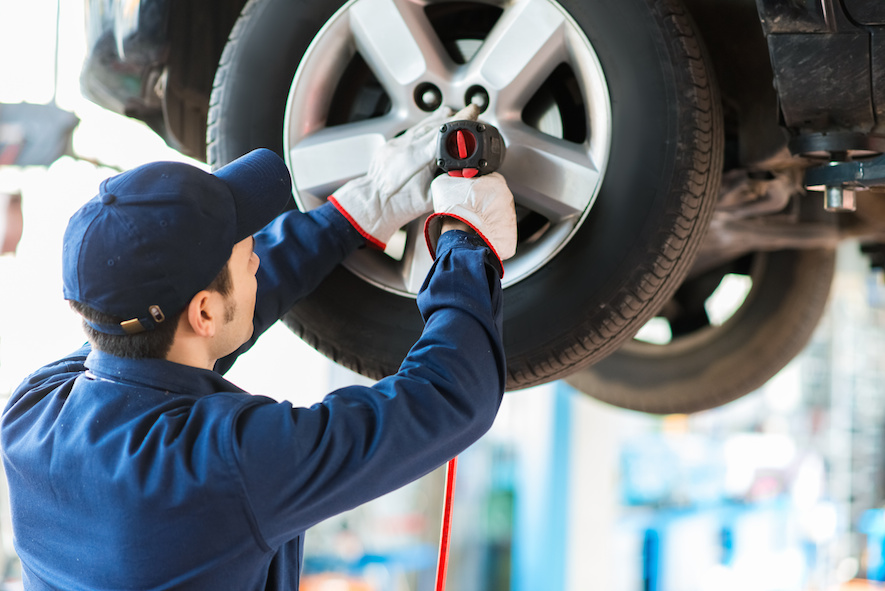Without a good set of tyres, you are not going to travel very far in your vehicle. However, once you buy and have tyres put on your car, you need to take care of them so they will last. Here are five tips for helping the tyres on your vehicle last longer and improving your vehicle’s performance.
Maintain Proper Pressure
One of the most important things you can do to help your tyres last longer is to keep them properly inflated. Along with increasing their life, proper tyre inflation pressure will also improve your vehicle’s fuel mileage. You should check the tyres’ pressure at least once a month when they are cool, with a good tyre gauge.
Driving on underinflated tyres can lead to ‘blowouts,’ cracking and tyre separation. If they are overinflated, then they can get stiff and you may feel vibrations when you drive the vehicle. The proper tyre pressure will be listed in the vehicle’s owner’s manual, so you should use that figure when adding or reducing the amount of air in the tyres.
Check Treads for Wear
Driving on tyres with low tread can lead to accidents. They can be easily penetrated by debris or, if the roads are wet, nearly bald tyres are prone to skidding when braking to stop. You should check the tread on older tyres and replace them when the tread is at .16cm or less. For your convenience, you can contact Dial a Tire to order replacements and have them mounted on your vehicle.
Maintain Rotation Schedule
It is important to rotate your tyres to ensure even tread wear and to prevent unnecessary vibrations when you drive. Since you need to change your vehicle’s oil every three months, it would also be a good time to have your tyres rotated. If you don’t have it done then, you should have them rotated at a maximum of every 10,000 km.
Avoid Overloading the Vehicle
In order to prolong the life of your vehicle’s tyres, you shouldn’t put too much weight on them. Putting the wrong tyres on your car can put stress on them and cause them to crack or blowout, or cause the tyre components to come apart. It is important to mount the correct tyre size on your vehicle so they are not overloaded, which can lead to an increase in fuel consumption and make it more difficult to handle your vehicle.
Avoid Spinning Tyres
If your vehicle gets stuck in the snow, mud, or sand, or on ice, avoid spinning the tyres when trying to get your vehicle moving again. Spinning the tyres can sometimes cause the tyres to explode, which can cause serious injuries to those nearby. Try to free your vehicle by shifting the transmission to create a gentle rocking motion.
You should also check your tyres for damage on a regular basis, so you don’t experience blowouts or flat tyres when you’re driving your car. Examine your tyres for cracks, bulges, penetrations or air loss and have your tyres replaced immediately if necessary.
